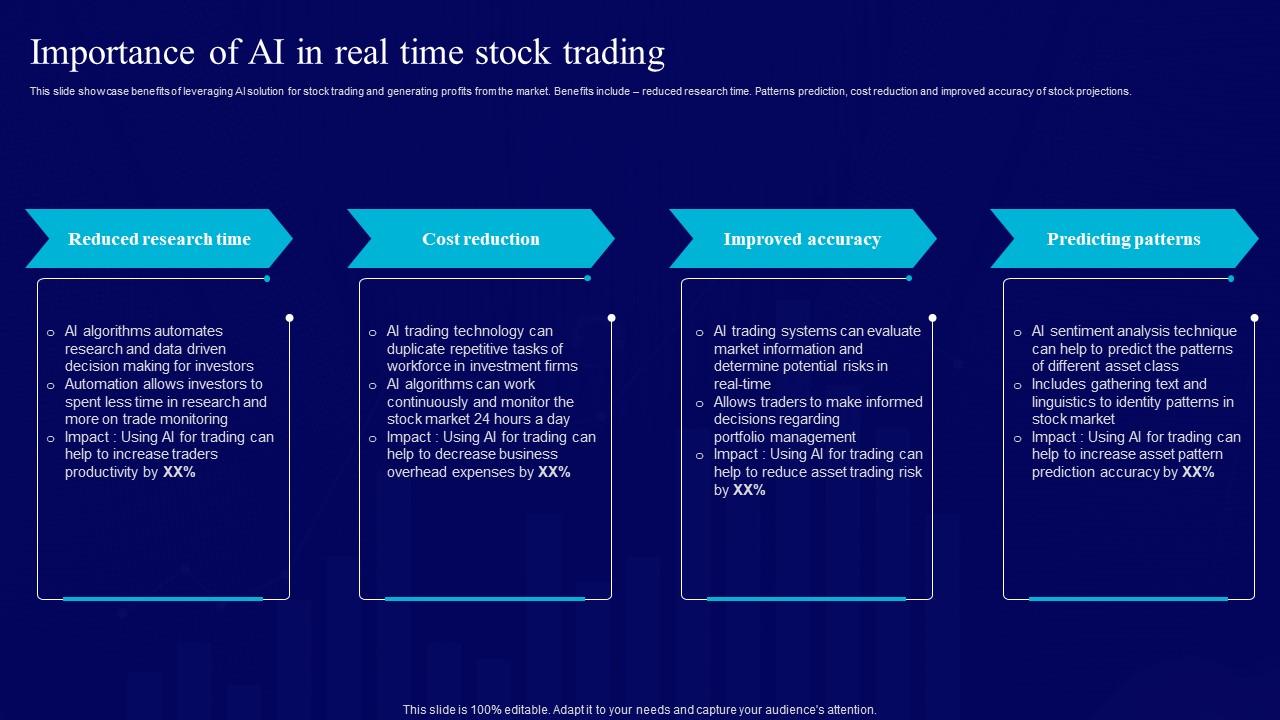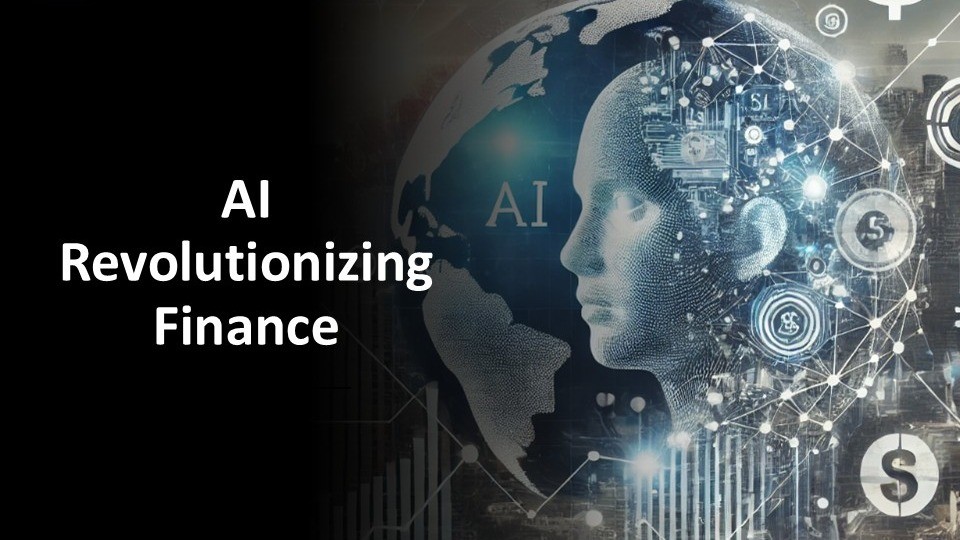Did you know that AI can analyze more market data in a minute than a human trader can in a lifetime? As we explore the future of AI in day trading, this article dives into how artificial intelligence is poised to transform the trading landscape over the next decade. We'll examine the potential for AI to enhance prediction accuracy, identify trading opportunities, and improve risk management while addressing the ethical concerns and limitations of these technologies. We'll also discuss the latest AI tools available for day traders, how they can help reduce emotional trading mistakes, and the skills traders will need to thrive in an increasingly automated market. Get ready to uncover how DayTradingBusiness can guide you through these changes and help you make informed trading decisions in the age of AI.
How Will AI Change Day Trading in the Next Decade?
AI will make day trading faster and more precise, with algorithms predicting market moves in real-time. It will automate trades, reduce emotional decisions, and analyze vast data sets instantly. Expect smarter risk management tools, personalized trading strategies, and increased accessibility for retail traders. Overall, AI will turn day trading into a more data-driven, efficient, and less stressful activity.
Can AI Improve the Accuracy of Day Trading Predictions?
Yes, AI can improve the accuracy of day trading predictions by analyzing vast data quickly, identifying patterns, and executing trades faster than humans. Advances in machine learning enable AI to adapt to market changes, increasing prediction reliability. However, it’s not foolproof; market volatility and unpredictable events still pose risks. AI’s future in day trading looks promising for enhancing decision-making and automation but won’t eliminate all uncertainties.
What Are the Latest AI Tools for Day Traders?
The latest AI tools for day traders include real-time data analysis platforms like Trade Ideas, TrendSpider, and Kavout, which use machine learning to predict market moves. AI-powered algorithms such as MetaStock and QuantConnect automate trade execution based on patterns and signals. Sentiment analysis tools like StockTwits and Bloomberg GPT gauge market mood to inform decisions. Additionally, AI chatbots like ChatGPT assist with market research and strategy development. These tools enhance speed, accuracy, and decision-making in day trading.
How Does AI Help in Identifying Trading Opportunities?
AI helps in identifying trading opportunities by analyzing vast market data quickly, spotting patterns humans miss, and executing trades at optimal times. It uses machine learning to predict price movements based on historical trends and real-time news, giving traders an edge. AI-driven algorithms can adapt to changing market conditions, making them valuable for future day trading strategies.
Will AI Replace Human Day Traders?
AI will automate many routine tasks in day trading, but it’s unlikely to fully replace human traders anytime soon. AI can analyze data faster and execute trades more precisely, but human intuition, market judgment, and adaptability remain crucial. The future of AI in day trading is a partnership—traders using AI tools to enhance decision-making rather than being replaced entirely.
What Are the Risks of Using AI in Day Trading?

Using AI in day trading risks overfitting to past data, leading to poor real-time decisions. It can generate false signals, causing losses if the model misinterprets market patterns. Relying too much on AI might reduce human oversight, missing unexpected market shifts. There’s also the risk of technical failures or hacking that compromise trading algorithms. Market volatility can outpace AI predictions, increasing the chance of significant losses.
How Does Machine Learning Impact Trading Strategies?
Machine learning transforms day trading by analyzing vast data quickly, identifying patterns, and making real-time predictions. It enables algorithms to adapt to market shifts, improve accuracy, and execute trades faster than humans. AI-driven models can spot opportunities and risks before they’re obvious, optimizing strategies and reducing emotional bias. As AI advances, future day trading will rely more on automated, data-driven decisions, making strategies more precise and responsive.
Can AI Reduce Emotional Trading Mistakes?
Yes, AI can reduce emotional trading mistakes by analyzing data objectively and automating decisions, helping traders avoid impulsive moves driven by fear or greed.
What Are the Costs of Implementing AI in Day Trading?

Implementing AI in day trading costs vary from $1,000 for basic tools to $10,000 or more for advanced, custom models. You’ll pay for AI software subscriptions, data feeds, cloud computing, and hardware. Development or hiring skilled data scientists can add $50,000+ annually. Maintenance, updates, and ongoing data analysis also increase expenses.
How Reliable Are AI-Driven Trading Bots?
AI-driven trading bots are increasingly reliable for executing quick trades based on data patterns, but they aren't foolproof. Market volatility, unexpected news, and algorithm limitations can cause errors. While they improve efficiency and can outperform humans in some scenarios, they still require oversight. The future of AI in day trading looks promising, with smarter, more adaptable bots, but human judgment remains crucial to navigate unpredictable market shifts.
What Ethical Concerns Exist with AI in Trading?
Ethical concerns with AI in trading include market manipulation, lack of transparency in algorithms, unfair advantages for those with advanced AI, and potential job losses for human traders.
How Can Beginners Benefit from AI in Day Trading?
Beginners can benefit from AI in day trading by using AI-powered tools for real-time market analysis, identifying trends, and automating trades. AI simplifies complex data, making it easier for newbies to spot opportunities and manage risks. It offers educational insights and alerts, helping beginners learn faster and make informed decisions. Overall, AI reduces the learning curve and enhances trading accuracy for those just starting out.
Learn about How Can Day Traders Benefit from Dark Pool Data?
What Is the Future of AI-Generated Market Forecasts?
The future of AI in day trading will see more advanced algorithms analyzing market patterns in real-time, making faster, more accurate predictions. Expect AI to incorporate machine learning and big data to adapt to market volatility and identify trends ahead of humans. Automated trading systems powered by AI will become more sophisticated, reducing human error and emotional bias. However, increased reliance on AI also raises risks of overfitting and market manipulation if not carefully regulated. Overall, AI will be a key tool for traders, boosting efficiency but requiring oversight to prevent unintended consequences.
How Do Regulatory Changes Affect AI Trading Tools?
Regulatory changes can limit or shape how AI trading tools operate, forcing updates to algorithms, restricting certain strategies, or increasing compliance costs. They can slow innovation if regulations are strict or create new opportunities if rules clarify market practices. Future AI in day trading depends on evolving regulations that balance innovation with market stability, influencing how adaptable and sophisticated AI trading tools become.
Will AI Make Day Trading More Accessible?
Yes, AI will make day trading more accessible by providing advanced algorithms, real-time data analysis, and automated trading strategies that anyone can use.
How Is AI Improving Risk Management in Trading?

AI enhances risk management in day trading by analyzing vast data quickly, identifying market patterns, and predicting potential losses. It automates stop-loss and position sizing, reducing human errors. AI-driven algorithms adapt to market changes in real-time, helping traders avoid big setbacks. By providing actionable insights and early warning signals, AI minimizes risks and boosts trading confidence.
Learn about How can poor risk management lead to losses in day trading?
What Skills Will Traders Need in an AI-Driven Market?
Traders will need strong data analysis skills, understanding AI algorithms, and the ability to interpret machine learning outputs. They must adapt quickly to AI-driven strategies, manage automation tools, and stay updated on emerging tech. Critical thinking to spot AI limitations and emotional resilience amid rapid market changes will also be essential.
How Will AI Influence Market Volatility?
AI will increase market volatility by enabling faster, more automated trades based on real-time data, which can cause sudden price swings. Advanced AI algorithms may amplify rapid trading reactions during volatile periods, intensifying price fluctuations. However, AI can also stabilize markets through better risk management and predictive analytics, reducing unexpected swings. In day trading, AI’s future lies in both boosting efficiency and potentially creating more unpredictable, rapid market moves.
Can AI Help Detect Market Manipulation?
Yes, AI can help detect market manipulation by analyzing trading patterns, spotting unusual activities, and flagging suspicious behaviors in real-time. It uses machine learning algorithms to identify anomalies that might indicate pump-and-dump schemes or insider trading. As AI advances, its ability to monitor vast data sets quickly makes it a powerful tool for uncovering manipulation in day trading.
What Are the Limitations of AI in Day Trading?
AI in day trading struggles with unpredictable market moves, sudden news, and emotional factors humans react to. It can misinterpret data during volatile swings or rare events, leading to losses. Limited understanding of context and news sentiment makes AI vulnerable to false signals. Overfitting to historical data hampers adaptability to new market conditions. It also lacks intuition and human judgment, especially in complex, fast-moving situations.
Conclusion about What is the Future of AI in Day Trading?
The future of AI in day trading holds immense potential, with advancements poised to enhance accuracy, streamline strategies, and improve risk management. While AI tools can significantly benefit traders, understanding their limitations and ethical implications is crucial. As the trading landscape evolves, DayTradingBusiness remains committed to providing insights and guidance, ensuring both beginners and experienced traders are equipped to navigate this AI-driven market effectively.